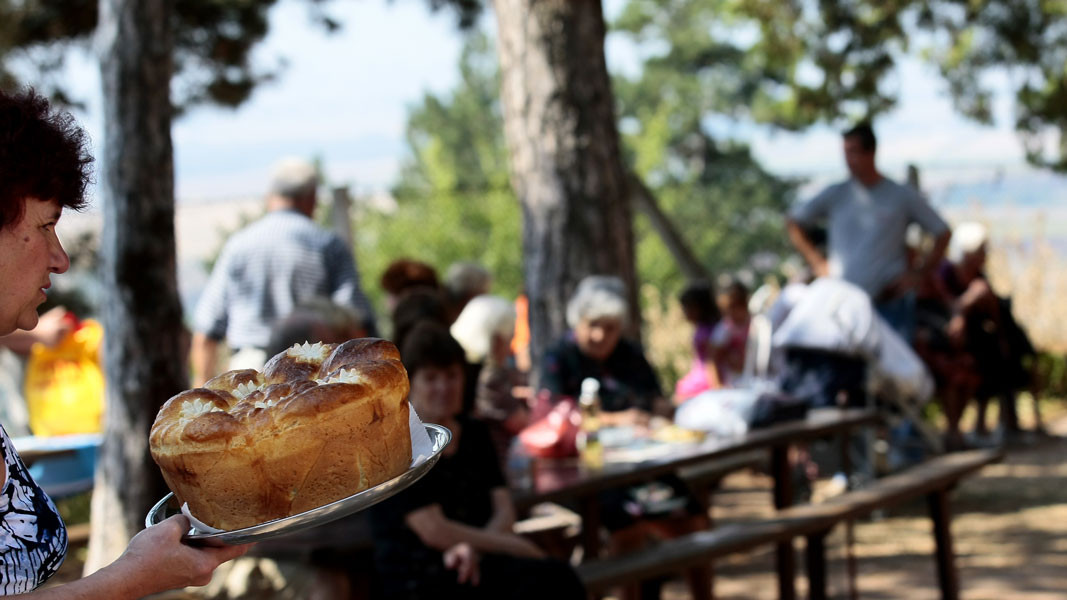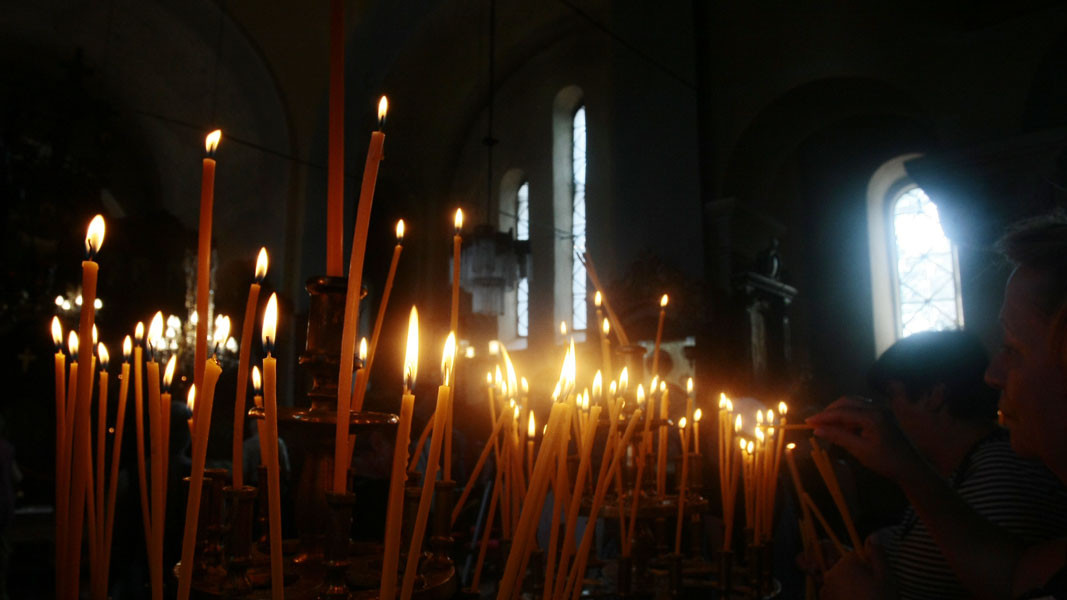The Assumption is one of the biggest summer holidays, marked by the Orthodox Church on August 15 (August 28, according to old style calendar.) The holiday has its origins in the Jerusalem Church and is one of the most ancient celebrations, dedicated to the Theotokos. In the icons, as well as in the festive liturgy in Orthodox churches on Assumption, the glorification of the Mother of God reaches its apogee.

In the villages where there is a church or a monastery named after the Mother of God, this day is especially solemn and a sacrificial offering for health and blessing is consecrated after the Divine Holy Liturgy. According to traditions, village meetings and family gathering are held. In Bulgarian folk songs, legends and beliefs, the Mother of God is a righteous, loving mother, merciful even to sinners. She is close to people, protects them, guides them, gives them signs how to act, which way to go, what to beware of. It is not by chance that in their prayers, the old Bulgarians call her "Dear Mother of God", filled with love and warmth, as for a native mother. She is believed to be the patroness of motherhood, women and children. That is why this is primarily a holiday for young brides who have not conceived. And since the day is dedicated to the Mother of God, women do not engage in housework. Those who do not have children yet bring home-made towels, aprons, socks, and flowers to the church and place them under the icon of the saint. And in the monasteries where her miraculous image is preserved, night vigils and liturgical processions are held as a sign of respect and adoration.

This is also the case in "Assumption of the Blessed Virgin Mary" Monastery in Iskrets, located at the foot of Mount Gradishte in Stara Planina. You can learn more about it from Radio Bulgaria’s article “The Assumption Monastery in Iskrets.”
Compiled by: D. Grigorova
English version: Alexander Markov
Photos: BGNESFather Lyubomir Leontinow is one of three priests at the Cathedral of St Boris the Conqueror in Berlin and was the first priest ordained for the Western and Central European Diocese in 1994. After completing his theology studies in Bulgaria, he settled..
After Cheesefare (Forgiveness) Sunday, the Great Lent has begun on March 3. Orthodox Christians will abstain from eating animal food including meat, eggs, milk and dairy products. The Great Lent symbolizes the 40 days which Jesus spent in the..
Batak is a name every Bulgarian remembers with deference and pain because the fate of the small town in the Rhodopes is scarred by one of the bloodiest events in national memory – the Batak massacre. During the first days after the outbreak of..
In 2025, the Catholic and Orthodox churches celebrate Easter on April 20. It is more joyful when we celebrate the Resurrection of Christ together...
On Good Friday, the saddest day for Christians, the liturgy commemorates the suffering, crucifixion and death of Jesus Christ, who sacrificed..
On 20 April, all Christians will celebrate the Resurrection of Christ. Against the backdrop of our divided and troubled world, Catholics, together with..

+359 2 9336 661
